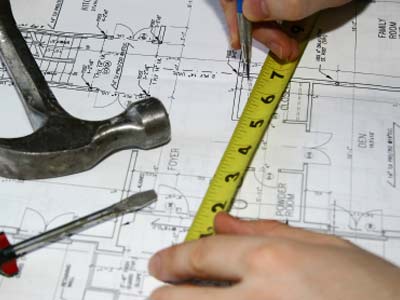After a divorce, it’s difficult to know what to do with your family home, especially since for most couples, this is the biggest asset that they own. However, while it’s not possible to split a home down the middle, it is possible to come up with a fair and equitable arrangement.
Many couples decide to sell their house, which can often make the process easier, but that does have its own complications. For example, you need to decide who gets to live in the house until it is sold. Furthermore, who will pay the cost of running and maintaining your house? The roof could leak and the AC could break, the yard needs to be maintained, and someone has to pay the household bills.

Before selling a house, it is often prudent to make home improvements. Painting the house, fitting new doors, remodeling the bathroom – these are all things that cost money, but they can also give you a strong return on your investment.
If you spend $5,000–$10,000 on home improvements, you could see your home rise in value by twice that amount. So, it’s often wise to discuss this with your partner. If both of you stand to benefit from the sale of the house, it could be worthwhile investing together in preparing your house for its eventual new owner. For ideas that can help with this, take a look at K-Designers news and other sources.
One contentious issue that often comes up during a divorce is the fate of a house that was bought before the marriage. However, in reality this is governed by state law. For example, in Minnesota, the distinction between marital and non-marital assets determines how this is treated.
“You owned a house before the marriage. You paid $15,000 cash, and got a mortgage for $110,000. You made mortgage payments of $800 a month for 2 years before the marriage. Before getting married, you also made major improvements to the house, increasing the value,” wrote the Minnesota Judicial Branch website. “The $15,000 downpayment, the mortgage payments for 2 years before the marriage, the improvements you made before the marriage, and part of the increase in value of the house are ‘non-marital.’”
As you can see, this can lead to complicated calculations. Your house may have risen in value over the last few years, but it could have fallen in value prior to your marriage. The interest rate may have varied from month to month, and your wife may have even contributed toward the rent before she was your wife.
Your divorce attorney will be able to help you with these sorts of issues. Usually, both lawyers will come up with their own math that is favorable to their client, and then will agree on some middle ground.
Of course, it is also possible that one of you may keep the house. However, if you have savings or other assets, the one that keeps the house could owe money to the other one. But, this is often a favorable outcome, particularly when children are involved.

